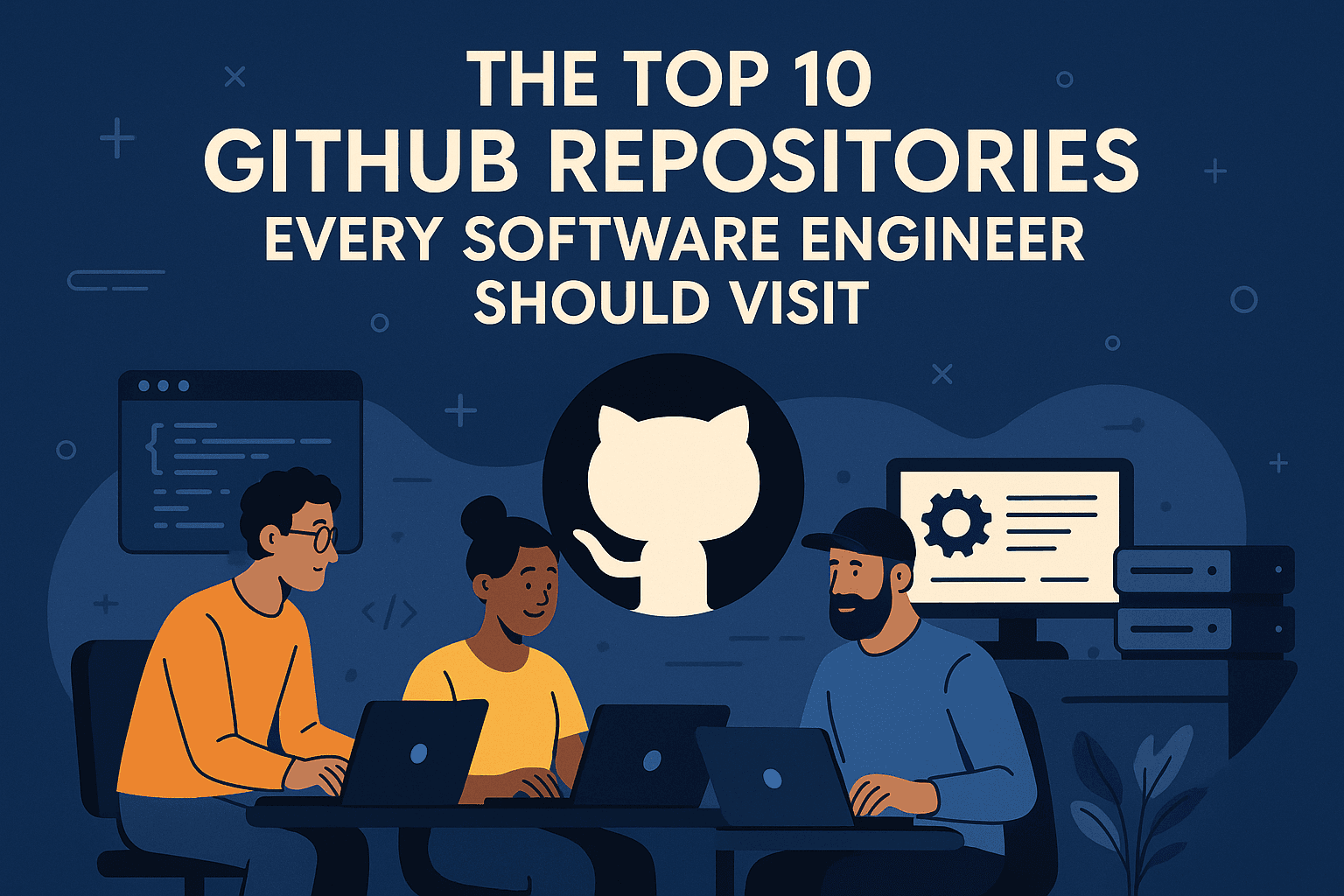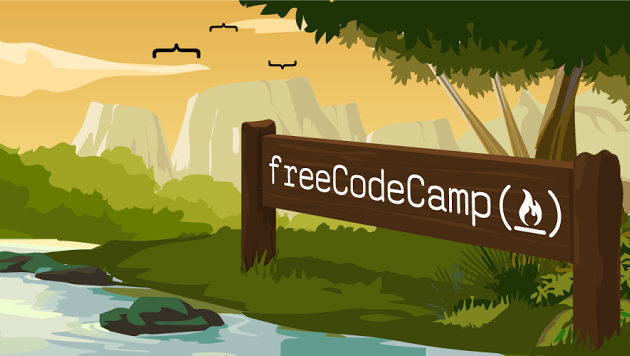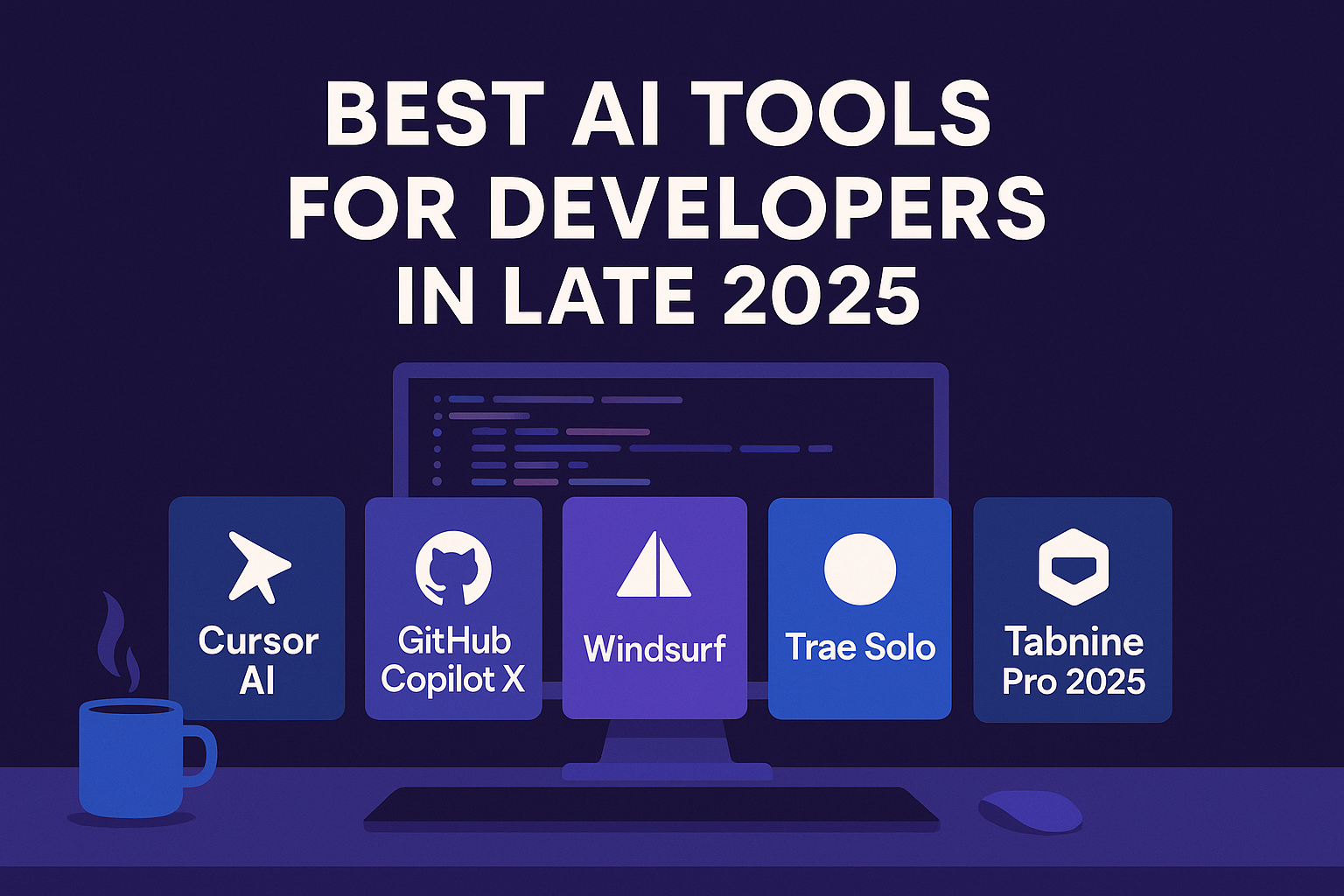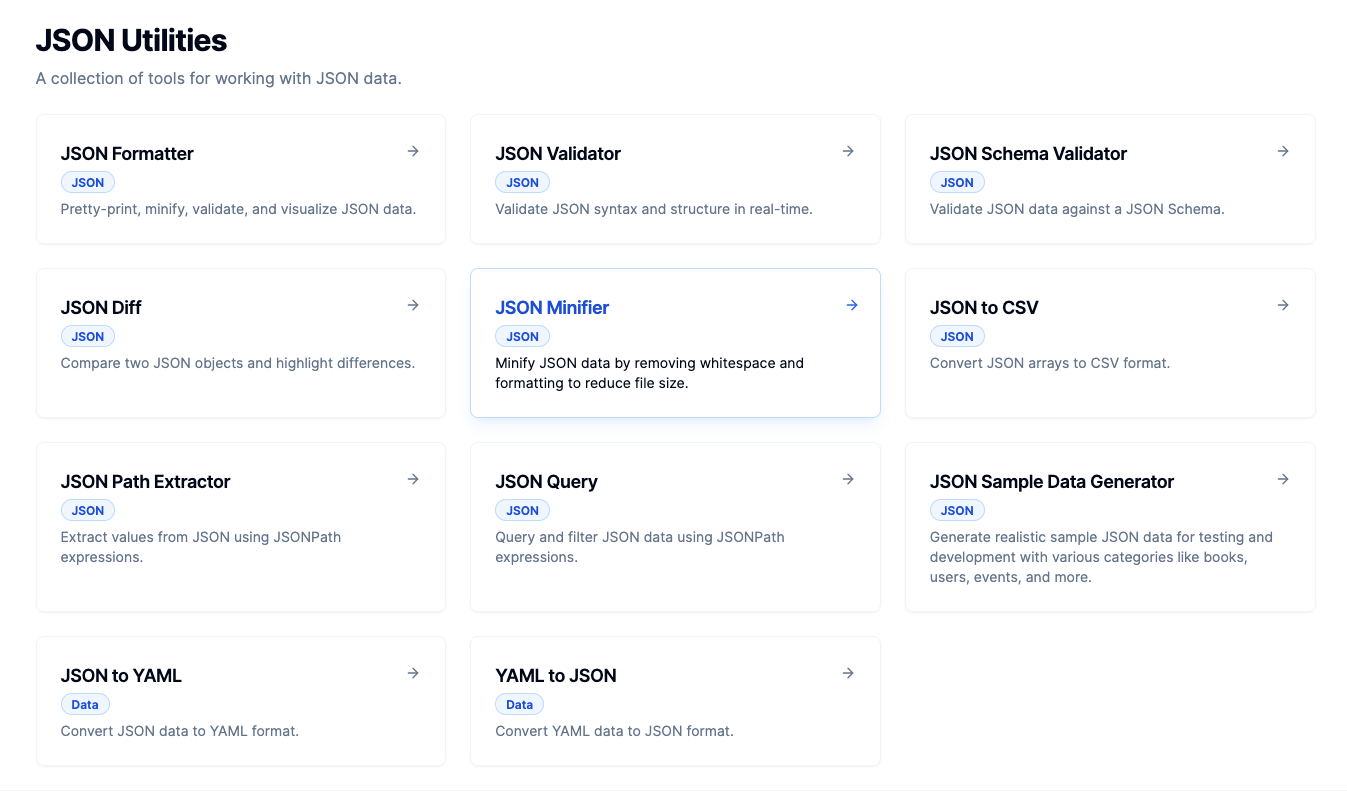In the ever-evolving landscape of software engineering, continuous learning and adaptation are not just advantageous—they are essential for survival and growth. While traditional education and on-the-job training form the bedrock of a developer's skill set, the open-source community, particularly GitHub, offers a treasure trove of resources that can accelerate a career trajectory from novice to seasoned expert. This guide delves into the top 10 GitHub repositories that every software engineer, regardless of their career stage, should not just visit, but actively engage with.
Our selection criteria for this list were stringent, focusing on repositories that offer comprehensive content, are actively maintained, and provide clear value for career progression. We looked for resources that cover the full spectrum of a software engineer's needs—from foundational computer science principles to advanced system design, and from practical coding exercises to strategic career roadmaps. The repositories chosen are not just collections of code; they are dynamic learning ecosystems, supported by vibrant communities and packed with actionable insights.
This article will serve as your roadmap to these invaluable resources. For each repository, we will dissect its core offerings, explain its relevance to different engineering levels, and provide a concrete implementation strategy to help you integrate its knowledge into your daily workflow. Prepare to bookmark, clone, and contribute your way to a more fulfilling and successful software engineering career.
1. The Foundation: freeCodeCamp/freeCodeCamp
- Category: Open Source Learning Platforms
- GitHub Stars: Over 426,000
- Best for: Beginners and those looking to fill knowledge gaps.
Why It's a Must-Visit
freeCodeCamp is more than just a repository; it's a complete, self-contained, and entirely free platform for learning to code. It boasts a comprehensive curriculum that covers everything from the basics of HTML, CSS, and JavaScript to advanced topics like data science and machine learning. Its interactive, project-based approach is a powerful way to solidify new concepts and build a tangible portfolio of work.
Technical Depth and Content
The repository contains the entire source code and curriculum for the freeCodeCamp.org platform. This includes thousands of hours of coding challenges and dozens of certification projects. The curriculum is broken down into certifications such as:
- Responsive Web Design
- JavaScript Algorithms and Data Structures
- Front End Development Libraries
- Data Visualization
- Back End Development and APIs
- Quality Assurance
- Scientific Computing with Python
- Data Analysis with Python
- Information Security
- Machine Learning with Python
The project-based learning model is particularly effective. For each certification, you must build five projects to earn the certificate, ensuring you can apply what you've learned in a practical context.
Implementation Strategy
- Start with the Basics: If you're new to programming, begin with the "Responsive Web Design" and "JavaScript Algorithms and Data Structures" certifications.
- Build a Portfolio: Complete the certification projects. These are excellent additions to a junior developer's portfolio and demonstrate practical skills to potential employers.
- Contribute: As an open-source project itself, contributing to freeCodeCamp is a fantastic way to gain experience. You can help by fixing bugs, translating content, or even adding new curriculum features.
2. The Aspiring FAANG Engineer's Bible: jwasham/coding-interview-university
- Category: Interview Preparation
- GitHub Stars: Over 318,000
- Best for: Anyone preparing for technical interviews at large tech companies.
Why It's a Must-Visit
Created by John Washam as his personal study plan for becoming a software engineer at Google, Coding Interview University is an exhaustive, meticulously organized collection of resources. It provides a clear roadmap for mastering the concepts necessary to ace interviews at top-tier tech companies.
Technical Depth and Content
This repository is essentially a to-do list, guiding you through a comprehensive computer science education. The topics covered include:
- Data Structures: Arrays, Linked Lists, Stacks, Queues, Hash tables, Trees, Tries, Heaps, and more.
- Algorithms: Sorting, searching, graph traversal, dynamic programming, and bit manipulation.
- System Design: A crucial component of senior-level interviews, covering topics like scalability, availability, and fault tolerance.
- Object-Oriented Design: Principles and patterns.
- Networking: The fundamentals of how the internet works.
It links to a vast array of external resources, including articles, videos, and online courses, providing a multi-faceted learning experience.
Implementation Strategy
- Follow the Plan: Start at the beginning and work your way through the checklist. Don't skip topics, even if you feel you know them.
- Practice Actively: For each data structure and algorithm, implement it in your language of choice. Solve problems on platforms like LeetCode or HackerRank.
- Mock Interviews: Once you've covered the material, practice with peers or use platforms that offer mock interviews. This will help you get comfortable with the high-pressure environment of a real interview.
3. The Architect's Blueprint: donnemartin/system-design-primer
- Category: System Design & Architecture
- GitHub Stars: Over 315,000
- Best for: Mid-level and senior engineers aiming for architect or lead roles.
Why It's a Must-Visit
As you advance in your career, your focus will shift from writing code to designing the systems that the code runs on. The System Design Primer is the definitive guide to this complex topic. It provides a structured approach to learning system design, a notoriously difficult and open-ended subject.
Technical Depth and Content
This repository is a masterclass in designing large-scale systems. It covers:
- Core Concepts: Load balancing, caching, data partitioning, sharding, message queues, and more.
- Case Studies: Detailed walkthroughs of how to design popular systems like Twitter, Uber, and Netflix. These are invaluable for understanding how to apply the core concepts in a real-world context.
- Object-Oriented Design: A section dedicated to the principles and patterns of object-oriented design.
- Interview Preparation: A section with tips and a framework for approaching system design interview questions.
Implementation Strategy
- Master the Concepts: Before diving into the case studies, make sure you have a solid understanding of the core concepts.
- Work Through the Case Studies: For each case study, try to design the system yourself before reading the provided solution. This will help you identify your blind spots.
- Apply to Your Work: Look for opportunities to apply these concepts in your current role. Even small-scale applications can help solidify your understanding.
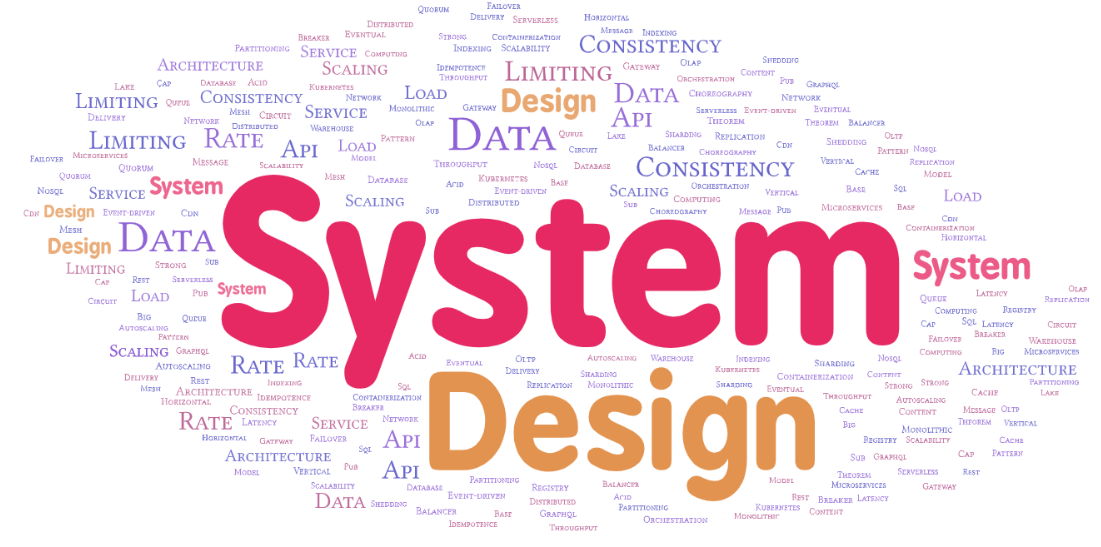
4. The Career Navigator: kamranahmedse/developer-roadmap
- Category: Career Development & Roadmaps
- GitHub Stars: Over 331,000
- Best for: Developers at all levels who want a visual guide to their career path.
Why It's a Must-Visit
The world of software development is vast and can be overwhelming. The Developer Roadmap repository provides a set of charts that outline the different paths you can take and the technologies you would need to learn to become a frontend, backend, or DevOps engineer.
Technical Depth and Content
This repository offers:
- Visual Roadmaps: Clear, easy-to-follow diagrams for frontend, backend, and DevOps roles.
- Technology Recommendations: For each step in the roadmap, it suggests relevant technologies and libraries.
- Community-Driven: The roadmaps are constantly updated by the community to reflect the latest trends in the industry.
Implementation Strategy
- Choose Your Path: Use the roadmaps to decide which area of software development you want to specialize in.
- Identify Your Next Step: Use the roadmaps to see what you should learn next.
- Stay Current: Revisit the roadmaps periodically to ensure your skills are up-to-date with the latest industry trends.
5. The Curated Library: sindresorhus/awesome
- Category: Developer Tools & Resources
- GitHub Stars: Over 200,000
- Best for: Finding the best tools and resources for any programming topic.
Why It's a Must-Visit
The Awesome repository is a list of lists. It's a curated collection of "awesome" lists on a wide variety of topics, from programming languages to text editors to productivity tools. It's the first place you should look when you're trying to find a library, tool, or resource for a specific task.
Technical Depth and Content
The repository itself is a simple markdown file with links to other repositories. The real value is in the linked repositories, which are curated lists of high-quality resources. You can find "awesome" lists for:
- Programming languages (Python, JavaScript, Go, etc.)
- Frameworks and libraries (React, Vue, Node.js, etc.)
- Tools (CLI tools, text editors, etc.)
- And much more!
Implementation Strategy
- Bookmark It: This is a repository you'll come back to again and again.
- Explore: When you're starting a new project or learning a new technology, check the relevant "awesome" list to see what the community recommends.
- Contribute: If you find a great resource that isn't on an "awesome" list, submit a pull request to add it.
6. The API Playground: public-apis/public-apis
- Category: API & Integration Resources
- GitHub Stars: Over 361,000
- Best for: Developers looking for free, public APIs to use in their projects.
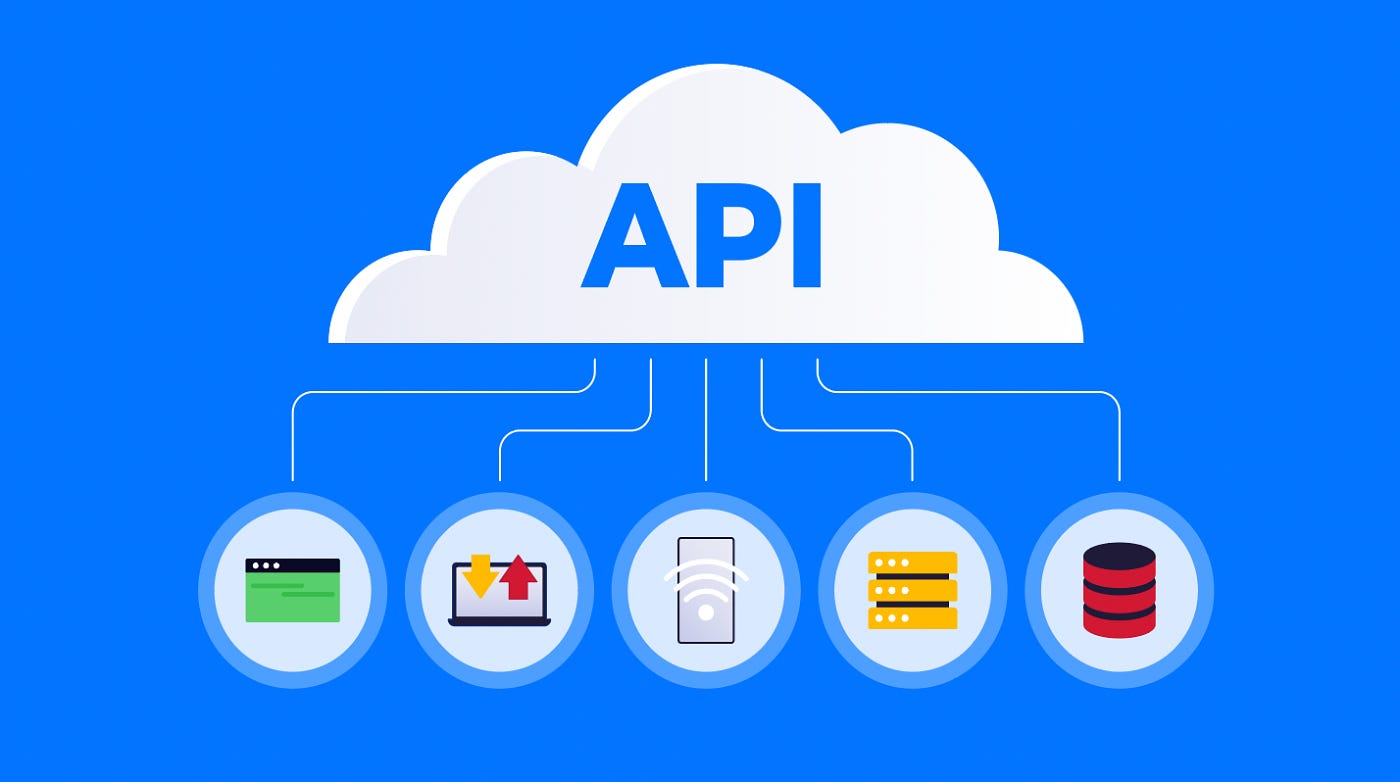
Why It's a Must-Visit
APIs are the lifeblood of modern web development. The Public APIs repository is a massive, categorized list of free APIs that you can use in your applications. It's an invaluable resource for hobby projects, hackathons, and even commercial applications.
Technical Depth and Content
The list is categorized by topic, such as:
- Animals
- Anime
- Cryptocurrency
- Games & Comics
- Machine Learning
- And many more.
For each API, the list provides a link to the documentation, a description of what it does, and whether it requires authentication.
Implementation Strategy
- Find an API for Your Next Project: Browse the list to get ideas for your next side project.
- Build Something: The best way to learn how to work with APIs is to build something with them.
- Add Your Own: If you know of a great public API that isn't on the list, contribute to the repository.
7. The DevOps Dojo: bregman-arie/devops-exercises
- Category: DevOps & Infrastructure
- GitHub Stars: Over 77,000
- Best for: Engineers looking to get hands-on experience with DevOps tools and concepts.
Why It's a Must-Visit
DevOps is an increasingly important part of software development. The DevOps Exercises repository provides a large collection of exercises and questions to help you learn and practice DevOps skills.
Technical Depth and Content
The repository covers a wide range of DevOps topics, including:
- Linux
- Docker
- Kubernetes
- Ansible
- Terraform
- Prometheus
- And more.
For each topic, there are a series of questions and exercises, ranging from easy to difficult.
Implementation Strategy
- Work Through the Exercises: Pick a topic you're interested in and start working through the exercises.
- Set Up a Home Lab: To get the most out of these exercises, set up a virtual lab environment where you can experiment with the different tools.
- Contribute: If you have an idea for a new exercise, you can contribute it to the repository.
8. The Language Deep Dive: trekhleb/javascript-algorithms
- Category: Programming Language Specific (JavaScript)
- GitHub Stars: Over 193,000
- Best for: JavaScript developers who want to master algorithms and data structures.
Why It's a Must-Visit
While coding-interview-university is a language-agnostic guide, JavaScript Algorithms and Data Structures provides concrete implementations of common algorithms and data structures in JavaScript. This is an excellent resource for solidifying your understanding of these fundamental concepts in a practical, language-specific context.
Technical Depth and Content
The repository contains implementations of:
- Data Structures: Linked List, Queue, Stack, Hash Table, Heap, Trie, Tree, and more.
- Algorithms: Sorting, searching, graph traversal, and more.
- Big O Notation: Explanations and examples of time and space complexity.
Each implementation is well-documented and includes links to further reading.
Implementation Strategy
- Read the Code: Go through the implementations of the different algorithms and data structures to understand how they work.
- Run the Tests: The repository has a comprehensive test suite. Run the tests to see the code in action.
- Re-implement Them: The best way to learn is by doing. Try to re-implement the algorithms and data structures from scratch.
9. The Digital Library: EbookFoundation/free-programming-books
- Category: Full-Stack Development
- GitHub Stars: Over 365,000
- Best for: Developers who want access to a vast collection of free programming books.
Why It's a Must-Visit
The Free Programming Books repository is a massive, community-curated list of free books on a wide range of programming topics. It's an incredible resource for developers who want to learn new things without spending a fortune.
Technical Depth and Content
The repository is organized by language and topic, making it easy to find what you're looking for. It includes books on:
- Programming languages
- Frameworks and libraries
- Software architecture
- And much more.
Implementation Strategy
- Find a Book on a Topic You Want to Learn: Browse the list and find a book that interests you.
- Read and Learn: The best way to use this repository is to actually read the books!
- Contribute: If you know of a free programming book that isn't on the list, add it.
10. The University at Your Fingertips: ossu/computer-science
- Category: Computer Science Fundamentals
- GitHub Stars: Over 190,000
- Best for: Self-taught developers who want a structured, university-level computer science education.

Why It's a Must-Visit
The Open Source Society University (OSSU) computer science curriculum is a complete education in computer science using online materials. It's a fantastic resource for developers who don't have a traditional computer science degree but want to gain a deep understanding of the fundamentals.
Technical Depth and Content
The curriculum is divided into three parts:
- Intro CS: An introduction to programming and computer science.
- Core CS: In-depth coverage of core computer science topics, including algorithms, data structures, and computer architecture.
- Advanced CS: A selection of advanced topics, such as machine learning and cryptography.
The curriculum is based on the degree requirements of undergraduate computer science majors.
Implementation Strategy
- Follow the Curriculum: Start at the beginning and work your way through the curriculum.
- Do the Projects: The curriculum includes a number of projects that will help you apply what you've learned.
- Join the Community: OSSU has a vibrant community of learners. Join the community to get help and support from your peers.
Your Implementation Strategy for Success
Visiting these repositories is just the first step. To truly benefit from them, you need a plan. Here's a general strategy you can adapt:
- Choose Your Focus: You can't learn everything at once. Pick one or two repositories that align with your current career goals. For example, if you're job hunting, focus on
coding-interview-universityandsystem-design-primer. - Timebox Your Learning: Dedicate a specific amount of time each week to exploring your chosen repositories. Even 30-60 minutes a day can make a huge difference over time.
- Be an Active Learner: Don't just read the content. Clone the repositories, run the code, and do the exercises. The more active you are, the more you'll learn.
- Contribute Back: The open-source community is a two-way street. As you become more comfortable with a repository, look for ways to contribute back. This could be as simple as fixing a typo or as complex as adding a new feature.
Conclusion: Your Journey Starts Now
The ten repositories outlined in this guide represent the pinnacle of collaborative, open-source learning. They are more than just collections of files; they are living, breathing ecosystems of knowledge, constantly updated and improved by a global community of developers. By integrating these resources into your learning and development workflow, you are not just acquiring new skills—you are plugging into the very heart of the software engineering world.
The path to becoming a top-tier software engineer is a marathon, not a sprint. It requires dedication, curiosity, and a commitment to lifelong learning. The resources on this list provide the map, the tools, and the community to support you on your journey. The next step is up to you. Choose a repository, dive in, and start building a better future for yourself, one commit at a time.
